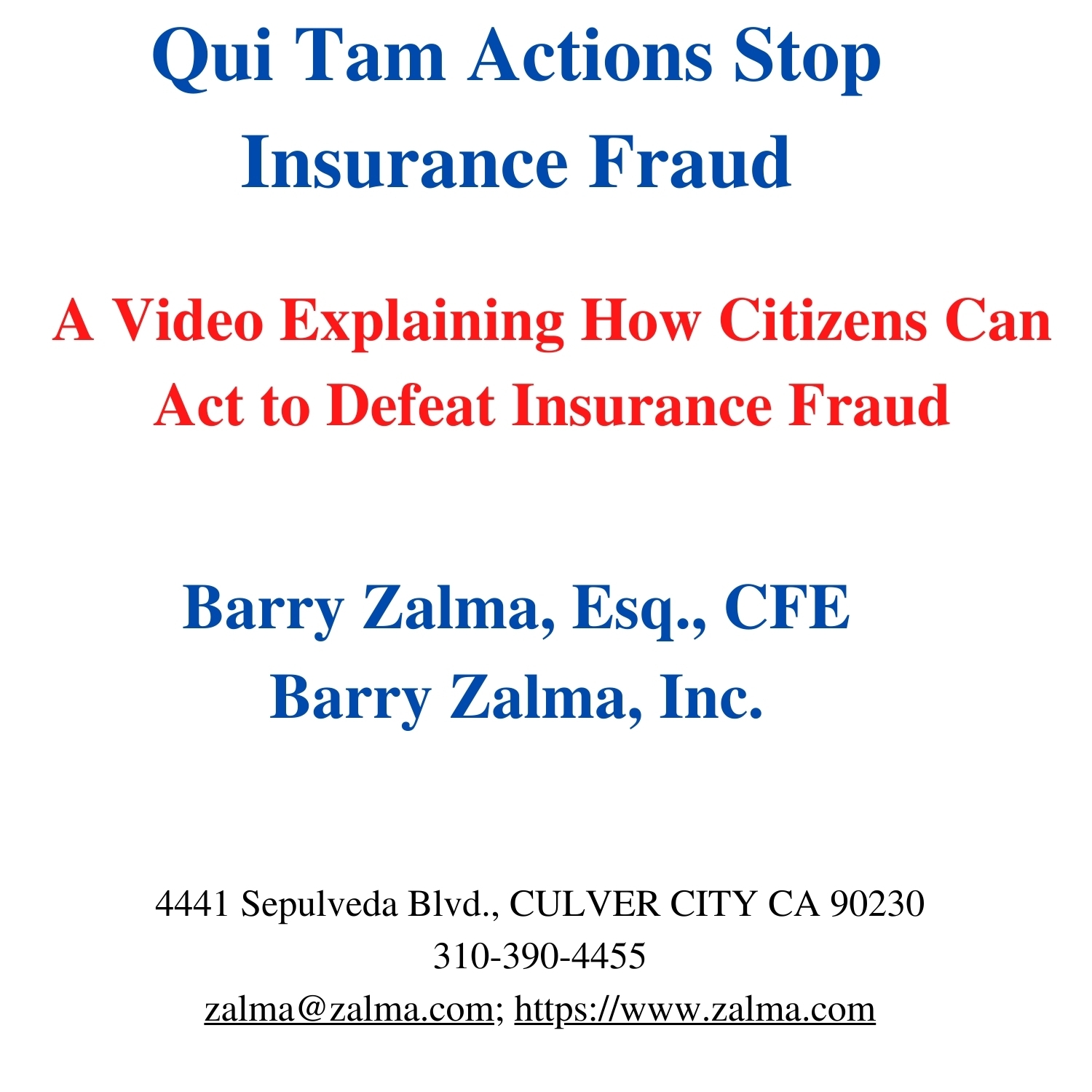Qui Tam Actions Stop Insurance Fraud

A Video Explaining How Citizens Can Act to Defeat Insurance Fraud
Read the full article at https://www.linkedin.com/pulse/qui-tam-actions-stop-insurance-fraud-barry-zalma-esq-cfe and see the full video at https://rumble.com/vj7lfx-qui-tam-actions-stop-insurance-fraud.html and at https://youtu.be/rzVv-MMlAKo and at https://zalma.com/blog plus more than 3800 posts.
The False Claims Act, also known as the “Lincoln Law,” dates back to the Civil War. President Lincoln signed the act into law in 1863 because war profiteers were selling the Union Army shoddy supplies at inflated prices. The original law included qui tam [ “Qui tam” is an abbreviation of the Latin phrase “qui tam pro domino rege quam pro si ipso in hac parte sequitur” meaning “Who sues on behalf of the King as well as for himself.” There are a number of pronunciations of the Latin abbreviation qui tam. The simplest is key tam (rhymes with “ham.”) Black’s Law Dictionary suggests kweye (rhymes with “eye”) tam.] provisions that allowed a private person (plaintiff) to sue those who defrauded the federal government. If the suit was successful the plaintiff would receive 50% of any recovery from the defendant.
The qui tam provisions were weakened greatly as a result of congressional amendments in 1943, and qui tam legislation became virtually nonexistent. However, in 1986, Sen. Charles Grassley, R–Iowa, and Rep. Howard Berman, D Calif., joined forces to amend the law and strengthen the incentives for citizens to uncover and fight fraud as qui tam relators. (Relators are the private plaintiffs under the False Claims Act).
The 1986 False Claims Act amendments received widespread bi-partisan support, and were signed into law by President Reagan. Since the revitalization, the qui tam provisions have increasingly been used.
The False Claims Act makes it unlawful to knowingly (1) present or cause to be presented to the United States a false or fraudulent claim for payment or approval, 31 U.S.C. § 3729(a)(1) (2006); (2) make or use a false record or statement material to a false or fraudulent claim, § 3729(a)(1)(B); or (3) use a false record or statement to conceal or decrease an obligation to pay money to the United States, § 3729(a)(7) (2006). Under the Act, private individuals … , referred to as “relators,” may file civil actions known as qui tam actions on behalf of the United States to recover money that the government paid as a result of conduct forbidden under the Act.
We are 100% funded for October.
Thanks to everyone who helped out. 🥰
Xephula monthly operating expenses for 2024 - Server: $143/month - Backup Software: $6/month - Object Storage: $6/month - SMTP Service: $10/month - Stripe Processing Fees: ~$10/month - Total: $175/month
- Art
- Causes
- Crafts
- Crime
- Dance
- Drinks
- Film
- Finance
- Fitness
- Food
- Jogos
- Gardening
- Health
- Início
- Literature
- Music
- Networking
- Paranormal
- Outro
- Politics
- Stories
- News
- Party
- Science
- Religion
- Shopping
- Sports
- SyFy
- Politically Incorrect
- Philosophy
- Theater
- Technology
- Wellness



